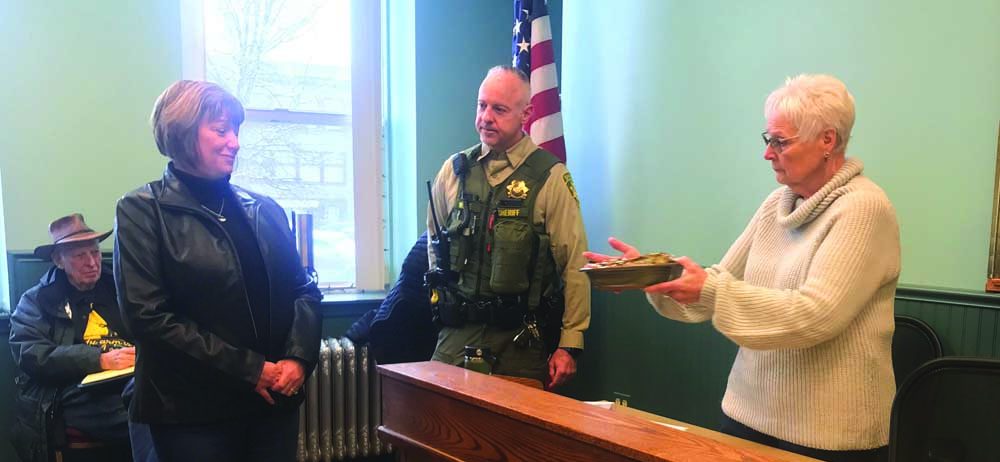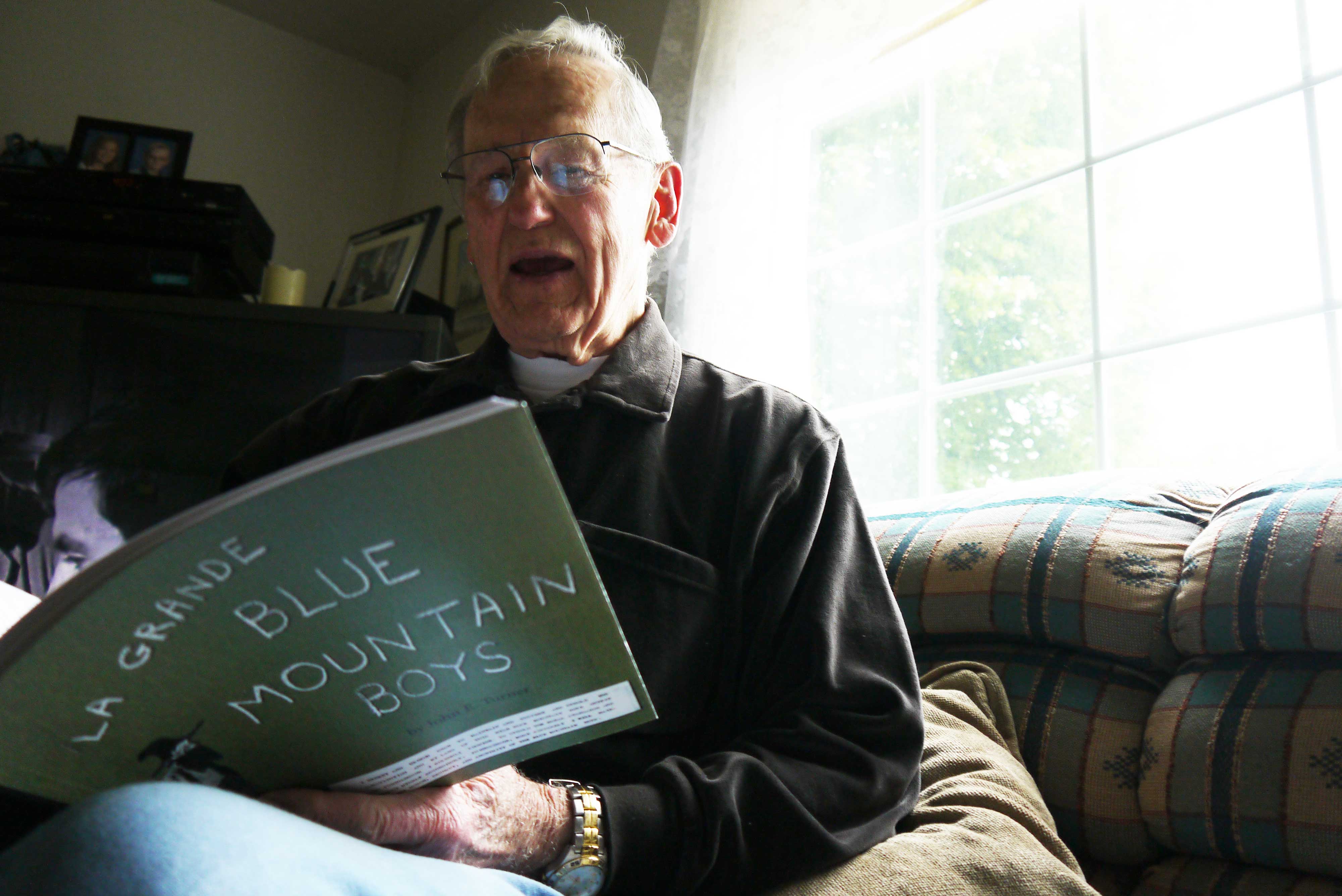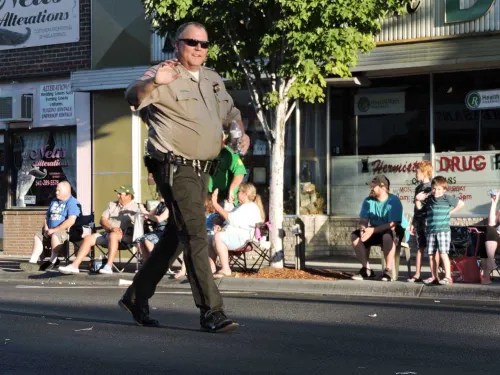FROGMAN MEMORIES WWII veteran recalls his experiences as member of underwater demolition team
Published 3:51 pm Friday, November 19, 2010
Rudd, a Navy frogman, was on Johnston Island in the South Pacific 500
miles from Pearl Harbor after being separated from his unit following a
ship explosion near Guam. He was with a Naval officer from his unit who
had also been accidentally left behind. Their unit had just arrived in
Pearl Harbor and Rudd and the officer were attempting to rejoin it. They
were trying to board military planes to Pearl Harbor but each time were
told there was no room for them. Other men and cargo had higher
priority they were repeatedly told.
“We kept getting bumped out,” Rudd said during a presentation to the Union County Historical Society Saturday.
Finally Rudd took a desperate measure. He asked the officer he was with for one of his two gold bars. Next he pinned the officer bar on his uniform.
The ploy worked. Rudd, claiming to be an officer, was soon allowed to board a plane for Pearl Harbor.
Still, he was not in the clear, not by a long shot.
“In those days they would shoot you if you impersonated an officer,” Rudd said.
To avoid anyone who might know he was not an officer, Rudd hid in the cargo bay of the plane between mail bags.
Rudd made it to Pearl Harbor without being caught.
“It was a bad trip then, but looking back on it now it was kind of funny.”
Rudd was reunited with his unit and continued working in the South Pacific the rest of the war. Part of an underwater demolition team, he found himself in harm’s way many times.
Rudd’s demolition team was responsible for checking the harbors of islands occupied by the Japanese – islands the United States was preparing to invade. The team checked for coral reefs and obstacles such as steel triangles the Japanese had put in harbors to sink incoming ships. Rudd often evaded enemy gunfire while swimming in some harbors.
“We were small targets because (the Japanese) were shooting 200 yards away,” he said.
Rudd and his fellow frogmen were equipped only with face masks, fins and shorts. They did not have the benefit of air tanks, wet suits or even snorkels.
Much of Rudd’s frogman work involved blowing up coral reefs. Handling the detonating of the explosives used for this was tricky.
“It was pretty scary but when you are 18 you think you can do it,” Rudd said.
More frightening were the Japanese planes flown by kamikaze pilots that passed over the convoys of ships Rudd was with during South Pacific voyages. The planes often appeared to be diving into Rudd’s ship but always hit other crafts in the convoys instead.
Watching those planes was a helpless feeling for sailors.
“I didn’t know where I could have run to for safety if a plane had hit us,” Rudd said.
One island Rudd’s unit stopped at was filled with pearls produced by shelled mollusks. Rudd and his fellow crew members collected dozens of the them. Later while at sea they entertained themselves at night by tossing them into the ocean. They enjoyed seeing light reflect brilliantly off them.
Rudd and his friends received a shock when they brought their remaining pearls to a jeweler on the United States’ mainland. They needed money and were hoping to get $5 a pearl but instead were offered $20.
“Twenty dollars was a lot in those days,” Rudd said.
Rudd, who had only a few pearls left, still regrets tossing so many of them away.
“That was a lot of money we threw overboard,” Rudd said.
Maui devastation
Rudd, who grew up in La Grande, received his underwater demolition instruction on Hawaii’s island of Maui.
“It was tough training. We ran all day, swam all day and blew stuff up all day,” Rudd said. “I think we blew up most of the trees on the west side of Maui.”
The young men also blew up many coral reefs at Maui and sometimes tossed explosives into the harbors just to see how many sharks they could kill. Several sharks floated to the surface along with many other dead aquatic creatures,.
Rudd, who today is a skilled story teller, jokes about the rough manner of speaking people in the Navy said he had.
“I was told that I was fluent in three languages – English, sarcasm and profanity,” he said.
Rudd has kept in touch with the men in his Naval unit over the years but stopped attending reunions several years ago.
“The stories get bigger and bigger. I thought surely they would all have Congressional Medals of Honor.”
Rudd attended La Grande High School but left early to join the Navy. Upon returning to La Grande following WWII he asked La Grande High School Principal Ron Walk about completing his graduation requirements. Walk responded not by giving him a schedule of classes to take but by handing Rudd his diploma. That sheepskin allowed Rudd to quickly land a local railroad job.
“Ron Walk was one great guy as far as I’m concerned,” Rudd said.
Saturday he spoke in lively terms about his three years in the Navy, but toward the end of his presentation his tone momentarily turned somber.
“I have been scared only once in my life,” he said. “The day I joined the UDT (underwater demolition team) until the day I left it.”





